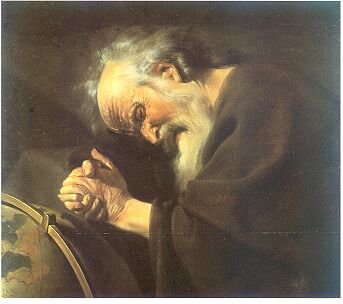I first arrived in Poland in June 1996. I stayed until June 1998, when I went home for the summer before returning for a third year. In 2000, I went back to Poland for a week. In 2001, I moved back to Poland to teach English, returning to the States for the summer of 2002. K and I left for American in 2005 and made our first return visit in 2008. Now it’s 2010, and I’m back in Poland for the fourth, maybe fifth time. Each time I arrive, one of the highlights has always been the unexpected encounter with former students.
Even when I lived here, I would bump into kids I hadn’t seen in a couple of years (by then, adults), and we would chat a bit. It’s great to see what your efforts have led to. Not all of them use English on a regular basis, but some do. Several of my students became English teachers (four that I can think of). A couple of them used English to communicate with the individual who would eventually become his/her spouse. Several of them worked abroad and used English with their employers.
During our return of 2008, I met at least ten former students. I bumped into four or five at a folk festival. One or two worked in shops that I visited. One married the son of a neighbor of my in-law’s. I met a few at the Wednesday market in Jablonka. Each time, it was the same conversation: what they’re doing; what I’m doing; plans for the future. Maybe a word or two about this or that amusing incident that happened in class years ago.
This year, I’ve met one, and only in passing, literally: he was in a car, I was on foot with the family. And that stands to reason: the kids I taught during my first three years are now in their late-twenties or early thirties. They have families of their own, and most likely they have achieved their wish of moving out of the village. I’ve heard as much about a few. The kids that I taught during my second stint in Poland are now in their early- to mid-twenties. They’re done with college, possibly married, with new worries and new passions.
I walk down the street now and see young, new faces. I search the features for a similarity — perhaps he or she is a younger sibling of this or that student. Very unlikely, I realize, but I only recently realized why it’s so unlikely. The kids who are now in high school, whom I would now be teaching, were only newborns when I first arrived. At most, they were two or three years old.
It’s a different world.
K has noted the same thing. “I go into the shops,” she told a friend, “And every single face behind the counter is new.” The teenagers have grown up, moved on, and miraculously, others have filled their spots.
It’s really the curse of being a teacher: I stand still in time. I remain with one of the twelve milestones of one’s life, and I get older while the kids get relatively younger.

It’s also the surprise of the passing of time. Once, we all thought we were ageless, possessors of infinite youth and endless energy. As adults, we go back to a spot where we felt that invincibility, and though we shouldn’t be, we’re surprised that nothing is the same, either with ourselves or with the environment itself.
Naturally, in noting all of this, I’m saying nothing new. Heraclitus discussed it 2,500 years ago, using his famous “never see the same river twice” metaphor to illustrate the centrality of change in the universe. Perhaps part of the nature of change is its sensitiveness. We don’t even realize it’s happened until we return to one of the poles of our lives that serve to solidify and give meaning to our lives, and then we see how much the world — including us — has grown.
0 Comments